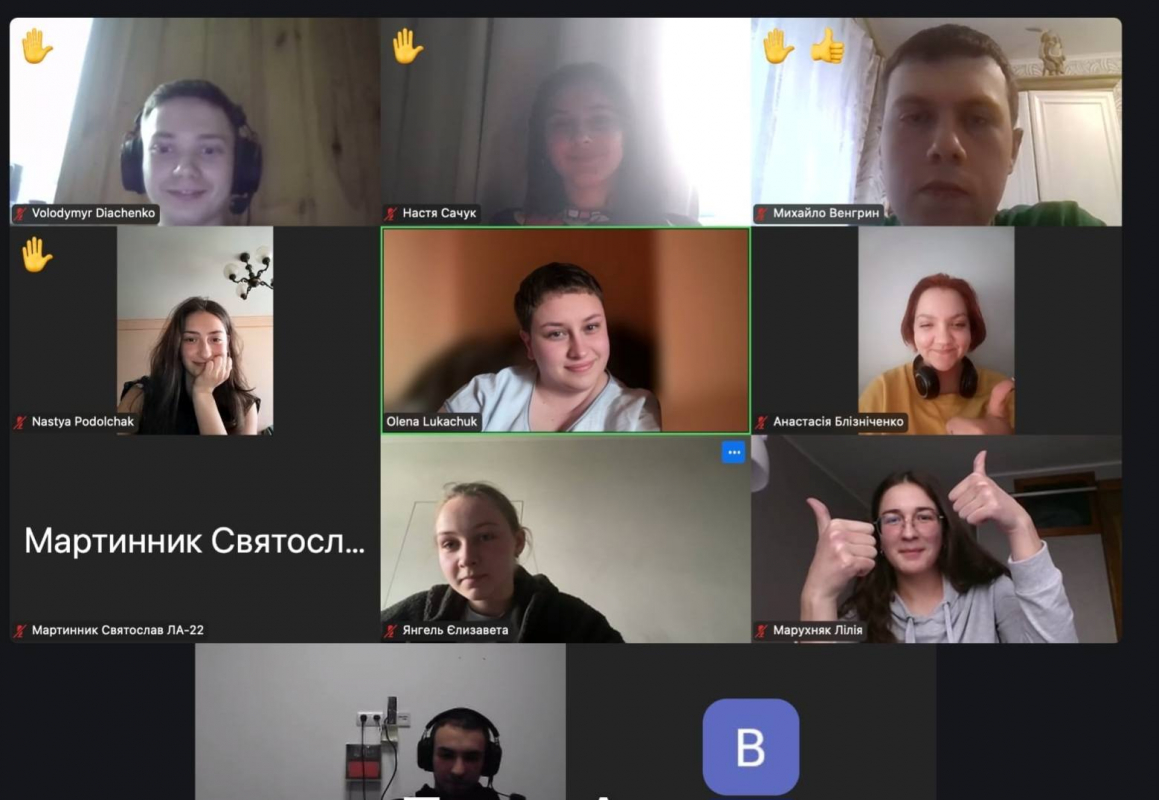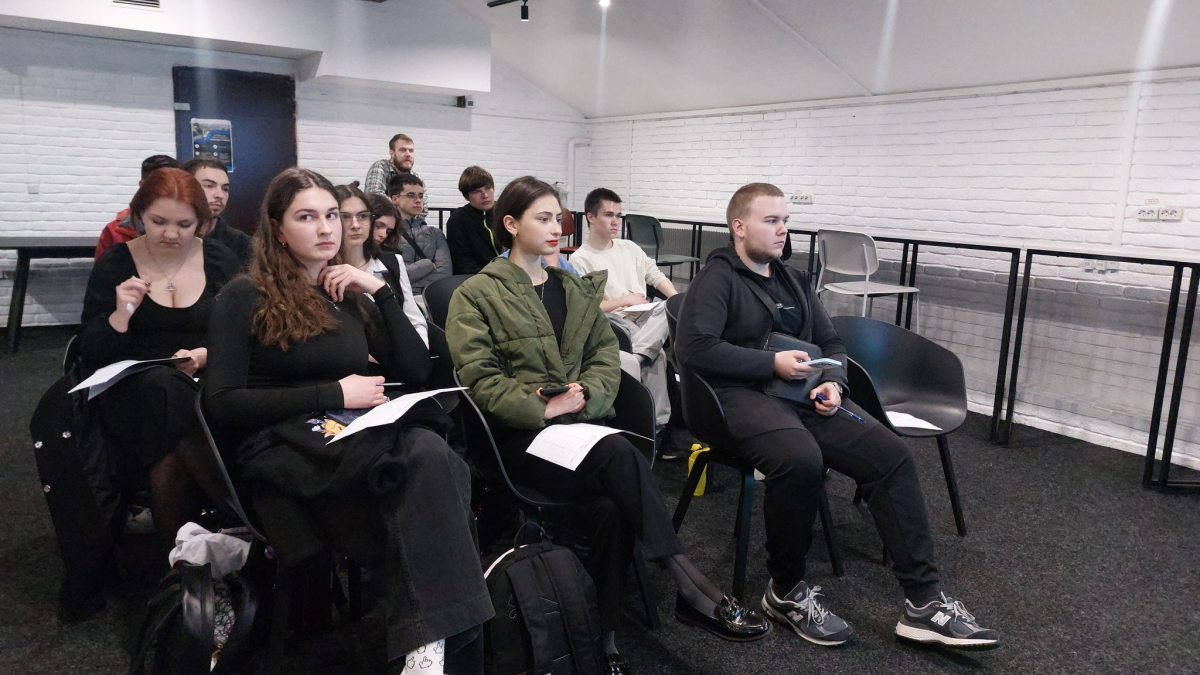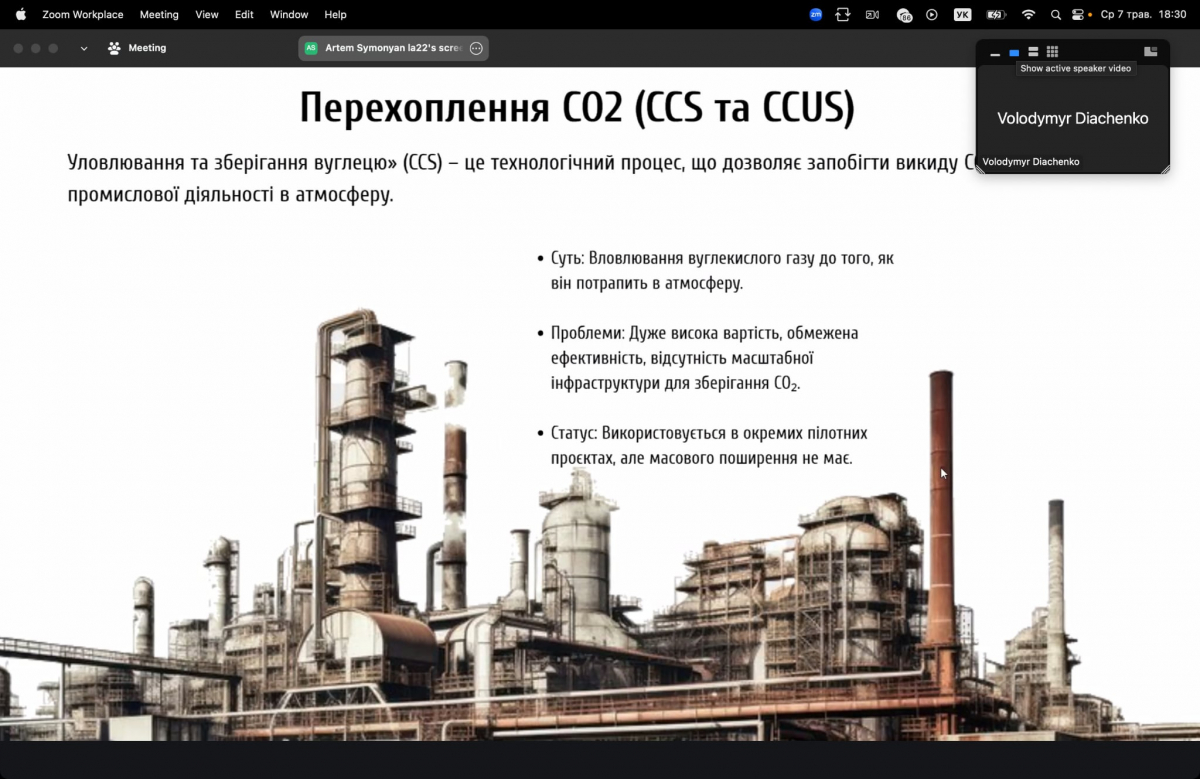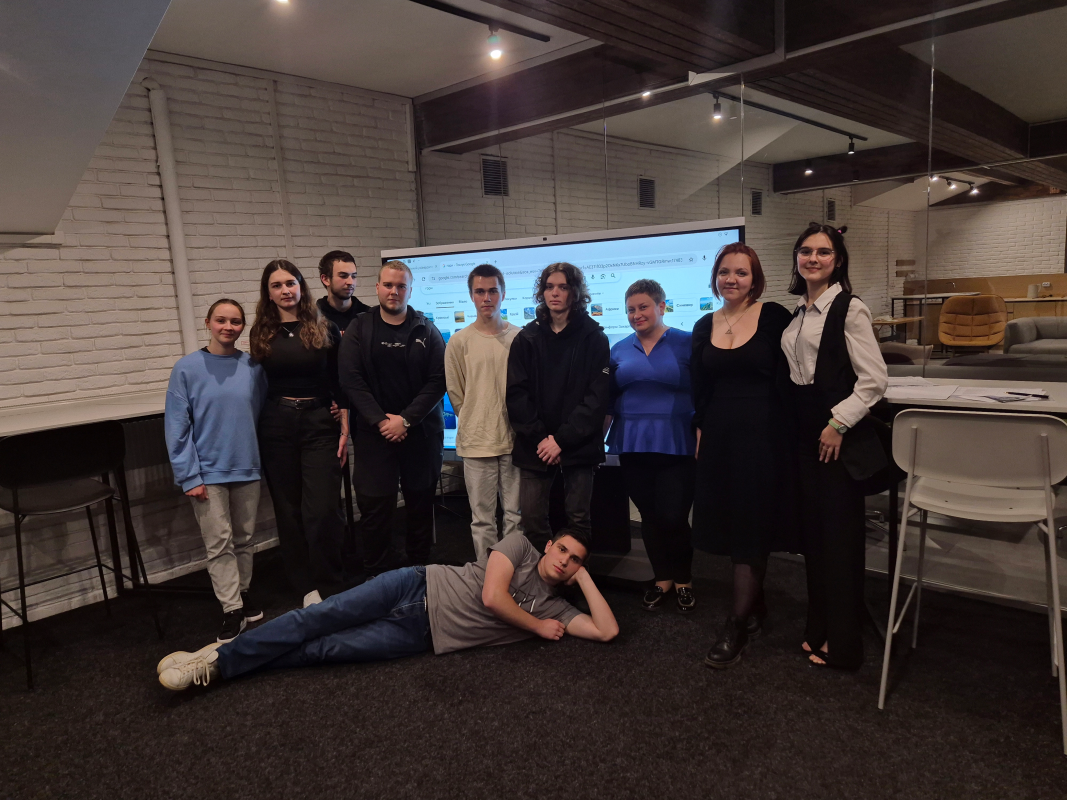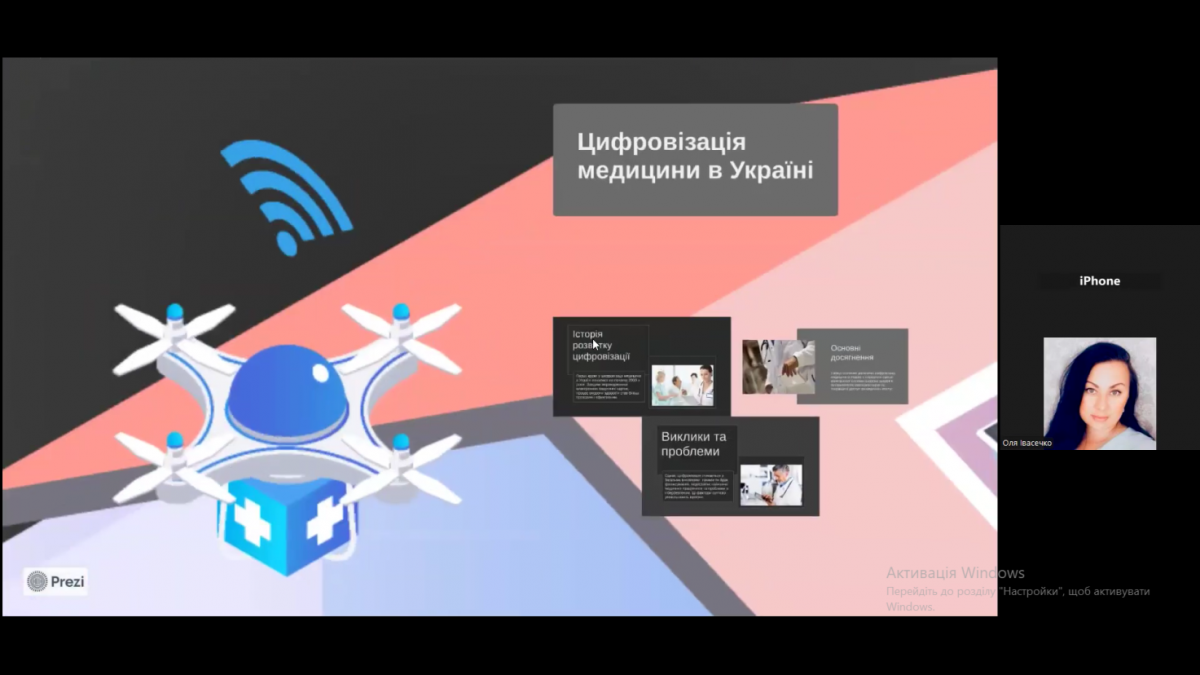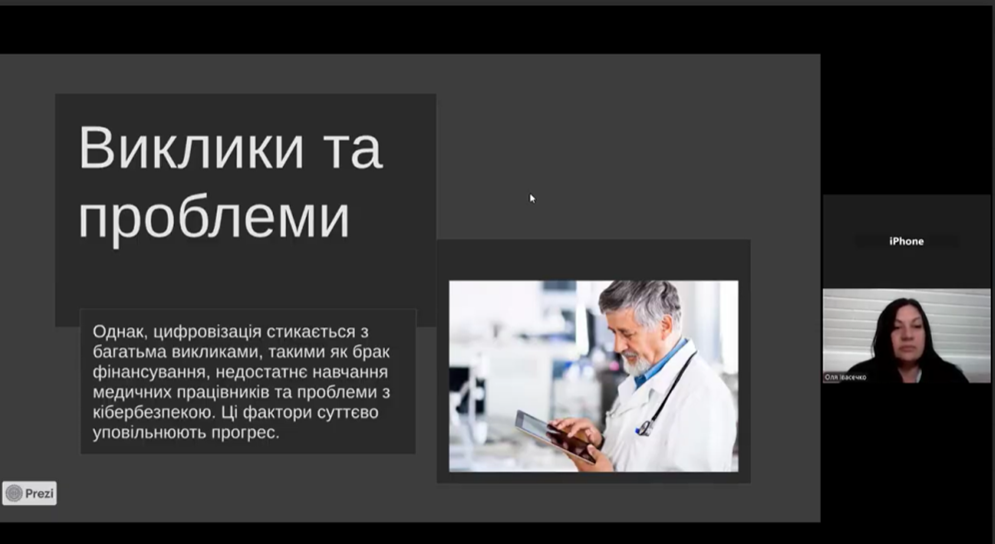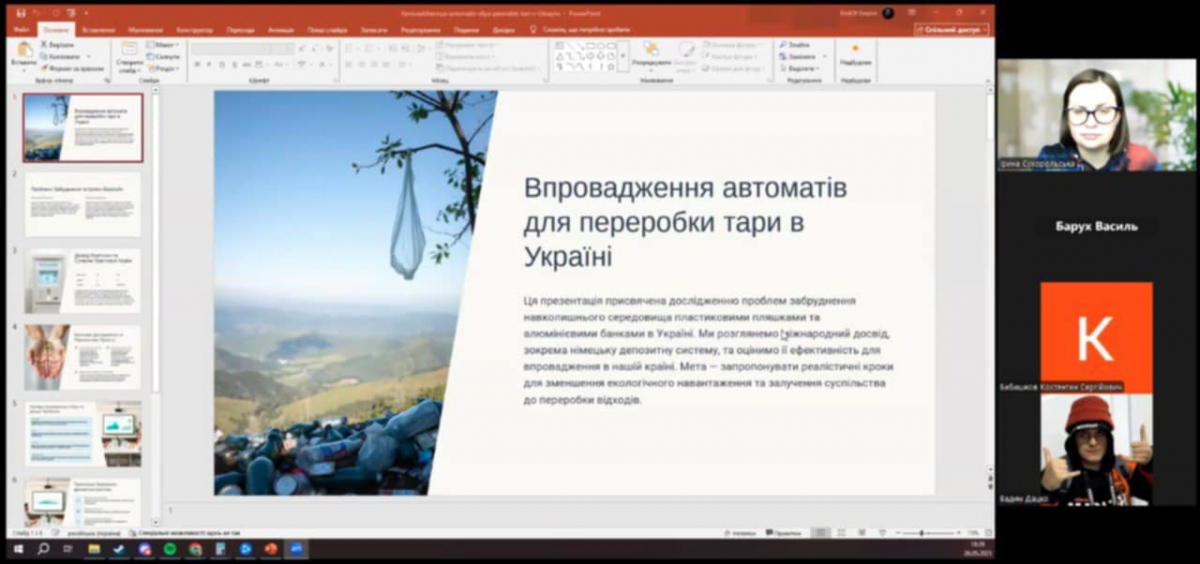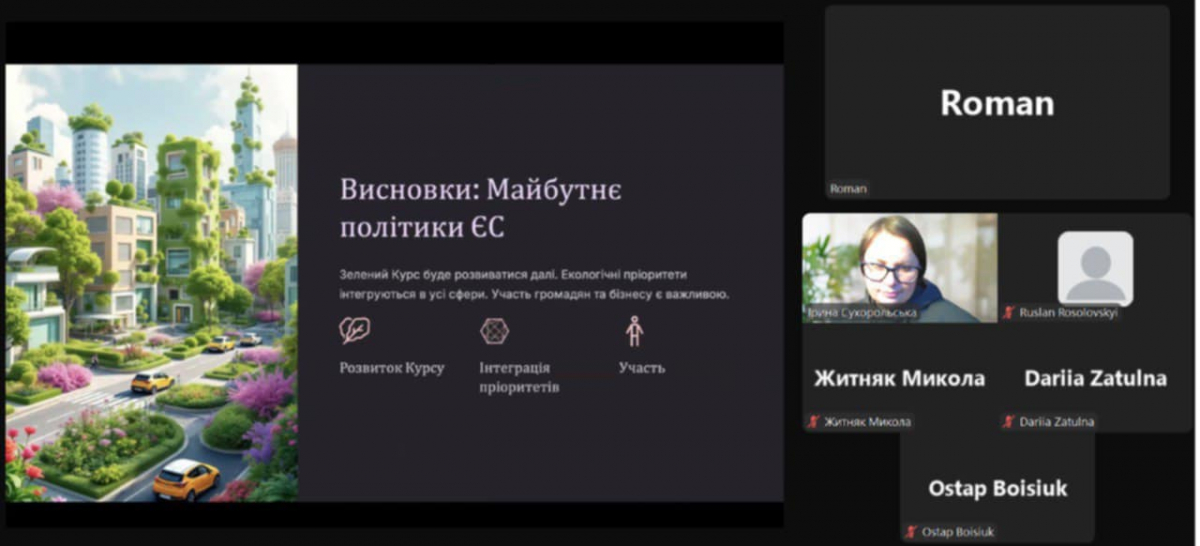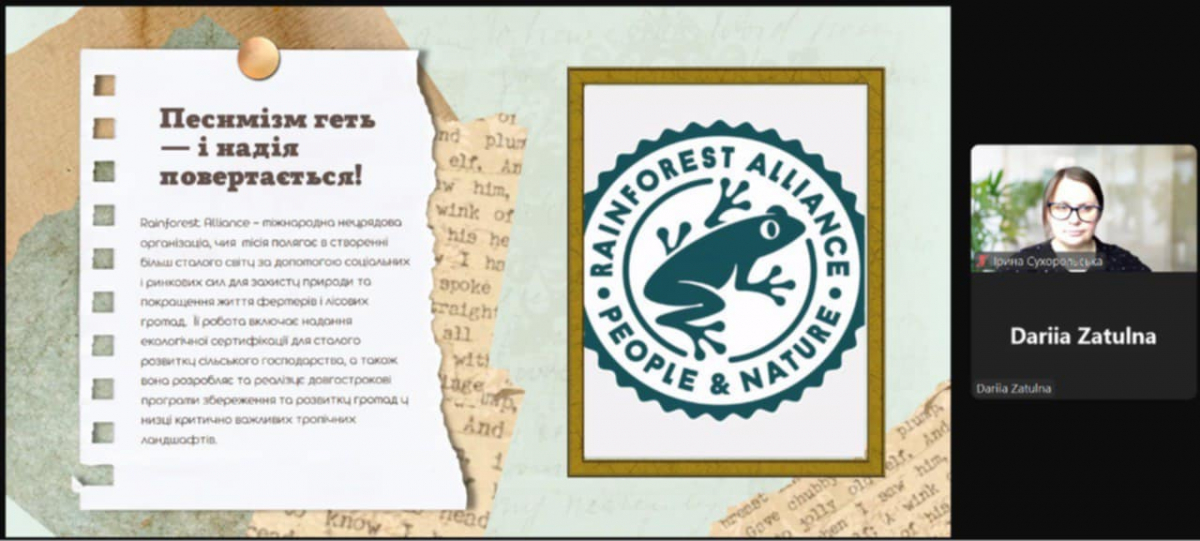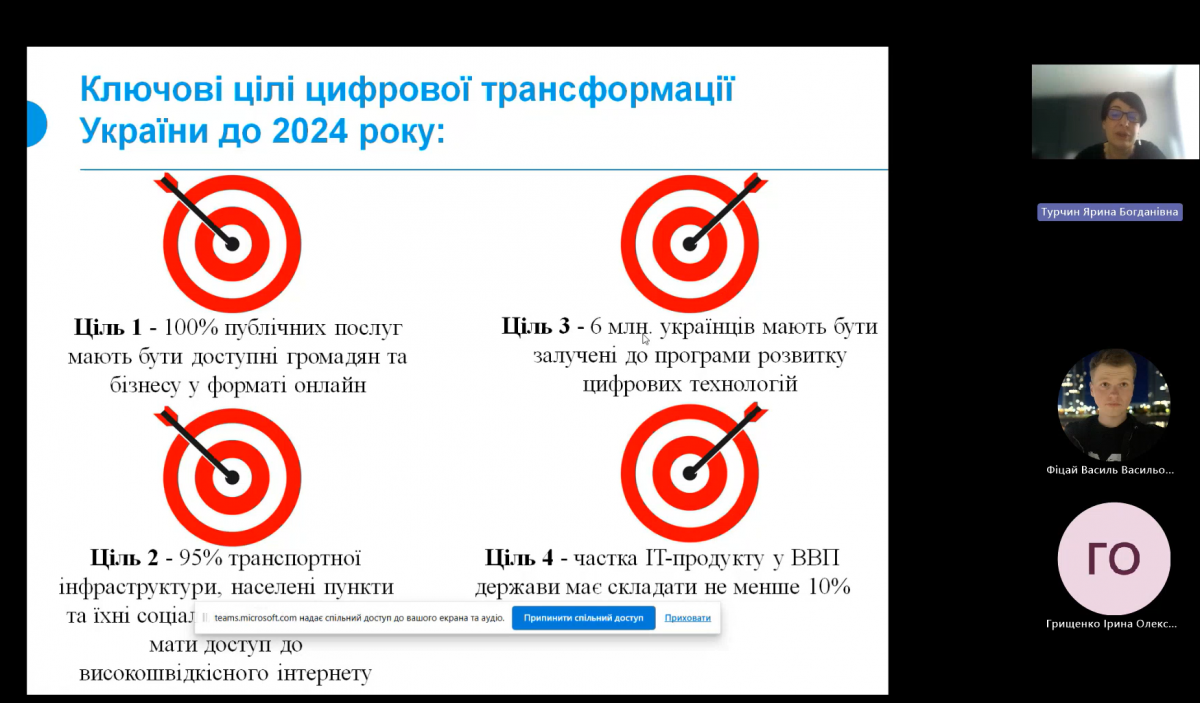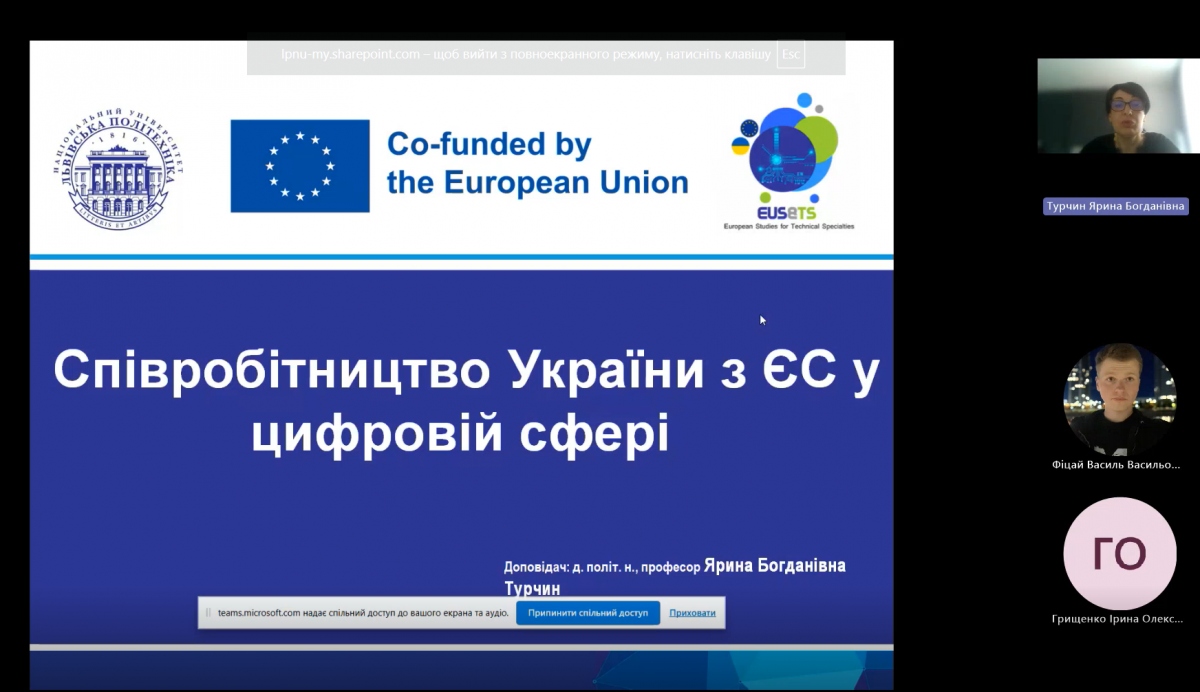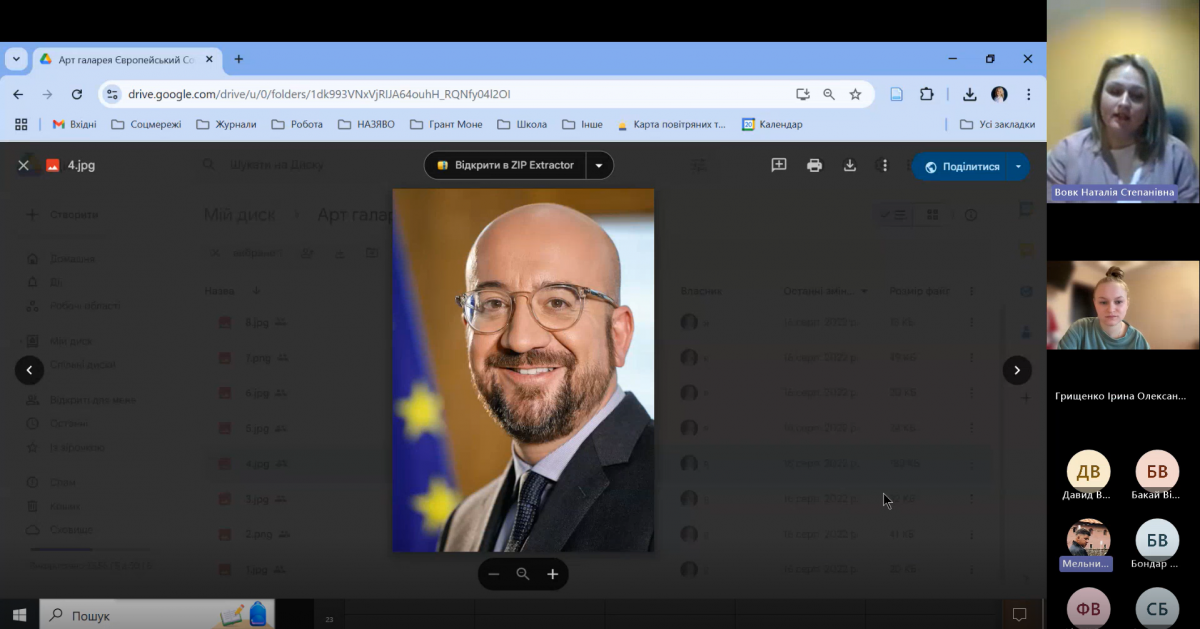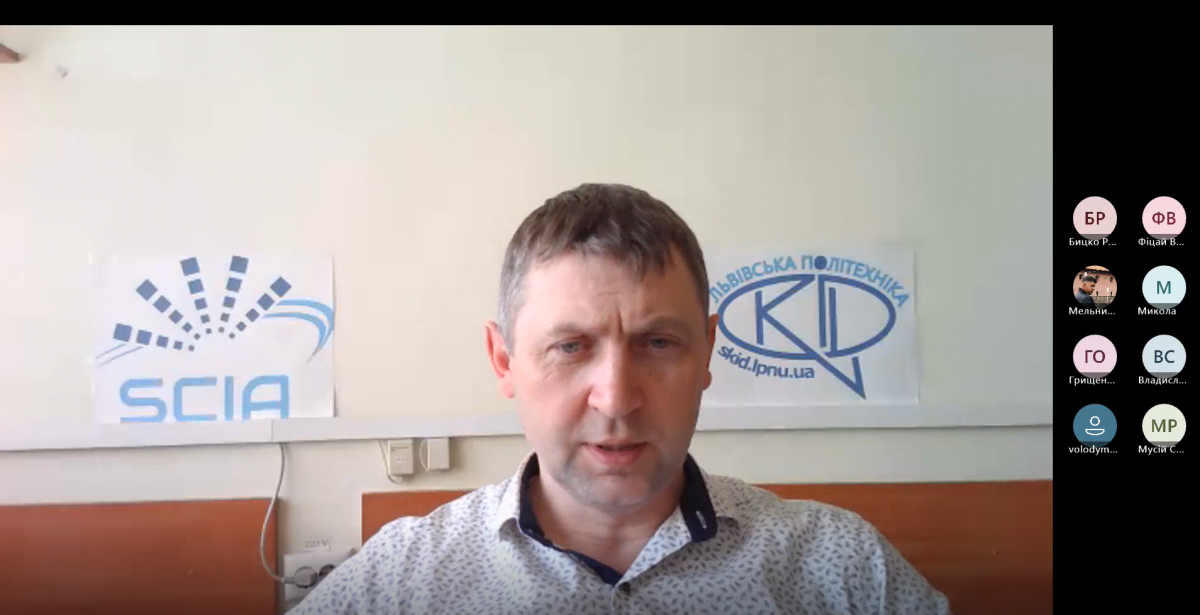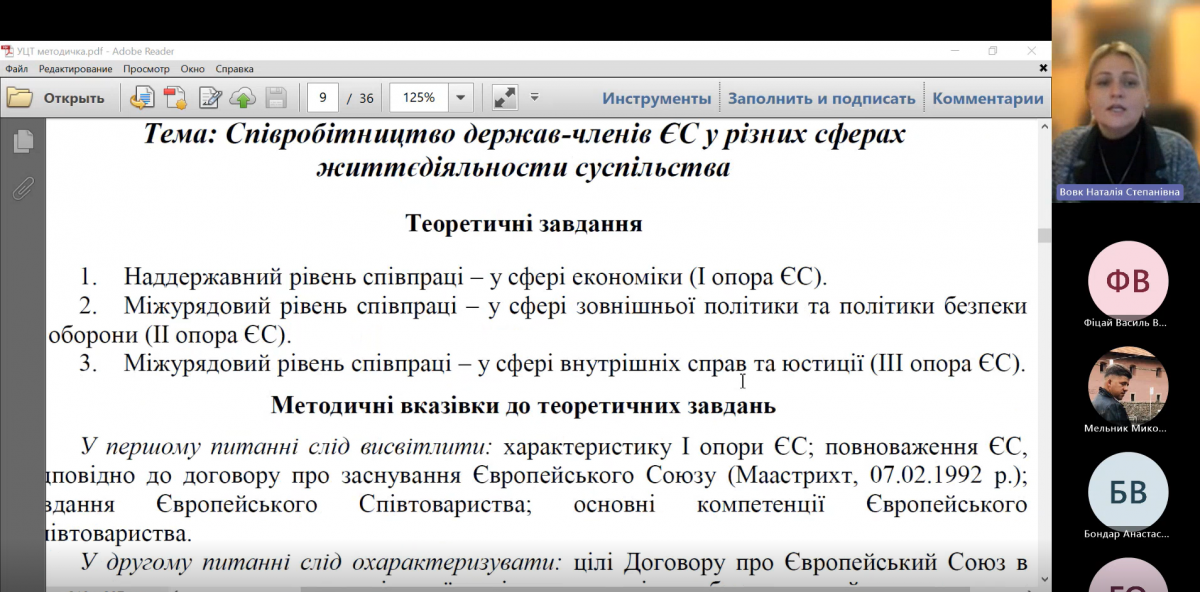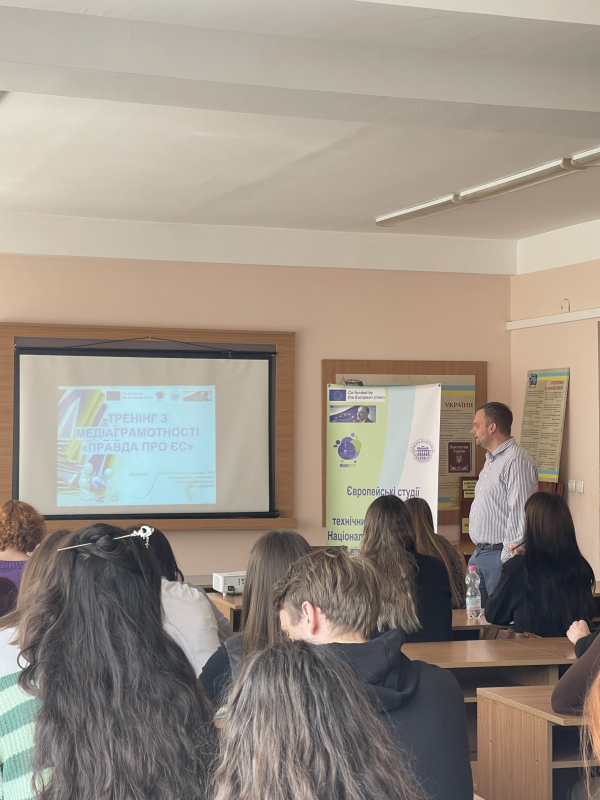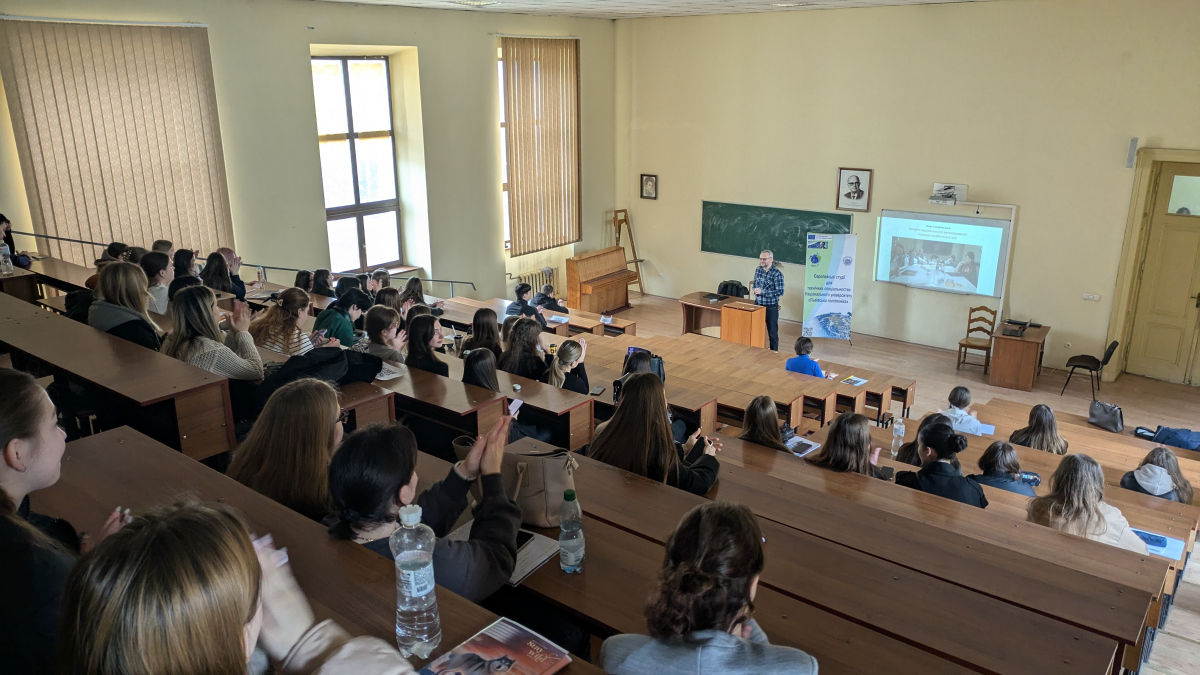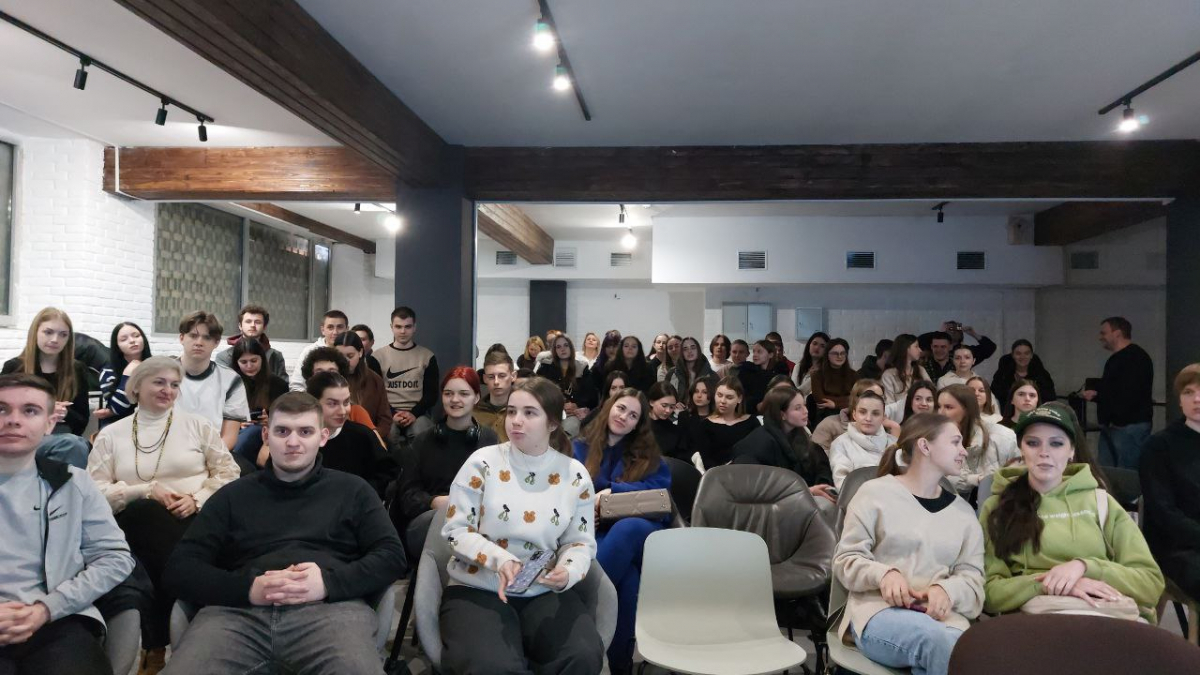The third year of the European Studies for Technical Specialties project at Lviv Polytechnic National University has been completed. According to the results of the spring semester of the 2024/2025 academic year, 180 students successfully completed three selected academic disciplines: “Environmental and Climate Sustainability of the EU” (4 groups), “Ukraine-EU: Digital Transformation” (2 groups), and “EU Energy and New Trends for Ukraine” (3 groups). In total, 324 students improved their knowledge of the European Union and Ukraine's European integration during the academic year.
The lectures were informative, full of up-to-date and relevant information that meets current challenges in the field of digital transformation, environmental and climate policies of the EU. Practical classes were conducted in an interactive format using a variety of active learning methods, including brainstorming, case analysis, role-playing, SWOT analysis, project method, facilitation sessions, and others. This approach ensured a deeper immersion of students in the course topics and contributed to the development of critical thinking and teamwork.
One of the final tasks of the modules is collective projects, during which students mainly focused on researching EU initiatives and the specifics of their implementation in Ukraine, taking into account the professional specialization of their teams.
Thus, the module “EU Environmental and Climate Resilience” was successfully completed by 104 students (Viacheslav Chornovil Institute of Sustainable Development, Institute of Mechanical Engineering and Transport, Institute of Chemistry and Chemical Technologies, Institute of Power Engineering and Control Systems, Institute of Computer Technologies, Automation and Metrology). As part of their individual projects, the teams presented research on the specifics of EU support programs, including the following topics:
- “Smart Garbage Bins”;
- “Life Program”;
- “EU Green Deal: Challenges for Ukraine”;
- “EU Financial Instruments for the Transition to Sustainable Energy”;
- “EU Climate Diplomacy”, and others.
41 students (Institute of Mechanical Engineering and Transport, Institute of Information and Communication Technologies and Electronic Engineering, Institute of Civil Engineering and Building Systems, Institute of Computer Technologies, Automation and Metrology) improved their knowledge of digital transformation and EU best practices through the EU-Ukraine: Digital Transformation module. The most relevant topics for the students were the introduction of modern digital technologies in various sectors of the economy, innovative teaching methods, cybersecurity, and regulatory aspects of digital transformation in accordance with European standards. The students presented their teamwork on the peculiarities of digital transformation of various economic sectors in Ukraine and the EU, in particular on the following topics:
- “Benefits or Harms of Digitalization”;
- “Problems of Digitalization in Ukrainian Society”;
- “Using Cloud Technologies to Improve Communication with the Authorities”;
- “E-Democracy in the EU and Ukraine: A Comparative Analysis”, etc.
36 students (Institute of Civil Engineering and Building Systems, Institute of Chemistry and Chemical Technologies, Institute of Computer Technologies, Automation and Metrology, Institute of Mechanical Engineering and Transport, Institute of Power Engineering and Control Systems) learned the EU's progressive experience in energy efficiency and energy saving. The students presented a number of their research papers on both EU energy trends and the specifics of implementing Brussels' energy programs and initiatives in Ukraine. Among the projects submitted by the students, the following are worth highlighting:
- “What are the challenges faced by the EU energy sector due to Russia's invasion of Ukraine”;
- “Biogas plants in Ukraine”;
- “SMART-energy”;
- “Development of green energy for the abandonment of fossil fuels”;
- “Energy reduced”, etc.
The students highly appreciated the content of the modules and the approaches to their teaching, as they were able not only to learn the theoretical foundations of the European Union, but also to acquire practical skills in applying European experience in the context of Ukraine's development and post-war reconstruction.
Upon successful completion of the modules, each student received a certificate of completion.
In addition, students participated in six lectures and discussions with well-known practitioners, experts, and researchers from the European Union:
- Oksana Yurynets, Member of Parliament of the Verkhovna Rada of Ukraine of the VIII convocation, Head of the Subcommittee on Regional Development and Cross-Border Cooperation of the Committee on European Integration, President of the NGO “Agency for European Cooperation”;
- Oksana Mylyanyk, green recovery expert, member of the Reform Support Team at the Ministry of Environmental Protection and Natural Resources of Ukraine, Environmental Sustainability Coordinator, SoftServe, legislative expert, member of Zero Waste Alliance Ukraine;
- Vitalina Babenko, Head of the National Contact Point “European Institute of Technology and Innovation” of the Horizon Europe program, Doctor of Economics, Professor of the Department of Mathematical Modeling and Data Analysis of V.N. Karazin Kharkiv National University;
- Olga Krevska, Head of the Directorate for European and Euro-Atlantic Integration at the Ministry of Digital Transformation of Ukraine;
- Vladyslav Ramazanov, PhD in Economics, Head of the Expert Group on Security of Supply and Development of a Competitive Natural Gas Market of the Directorate for Oil and Gas Complex and Development of Oil, Natural Gas and Petroleum Products Markets of the Ministry of Energy of Ukraine;
- Olena Vusyk, Senior Project Manager of the Waste Management Reform Team of the Ministry of Ecology's Reform Recovery and Support Team, lawyer, analyst, rulemaking expert, advisor to the Ukrainian Climate Network 2023-2024.
Students from Lviv Polytechnic also participated::
- regional business webinar “Approximation to EU Standards and Opportunities for Ukrainian Business: Experience of the Western Region” (invited speakers - representatives of the EBA Western Ukrainian Office: Head of the EBA Mariana Lutsyshyn, Communications Coordinator Oksana Kokots; Olesia Khaletska, Director of the Lviv Medical Business Cluster; Taras Demkura, Vice President of the National Committee of the International Chamber of Commerce (ICC Ukraine), member of the World Coordination Council of Amway, Ambassador of Cultural Diplomacy Projects, businessmen;
- Youth Forum “Your European Perspective”;
- workshop “ Boost Your Digitalization”;
- interactive event “World of Communities”;
- Academy of European Studies “Decentralization and Community Development: EU Programs for Ukraine”;
- Winter School European best practices: energy, digital and environmental dimensions;
- interactive event Speaking Club “New European Trends and Professional Growth”;
- media literacy events “The Truth about the EU”;
- online conference “Sustainable Development of the EU - Best Practices for Ukraine”;
- Eurolibrary interactive event (guest speaker - Petro Sukhorolskyi, PhD in Law, Associate Professor of Political Science and International Relations, Institute of Humanities and Social Sciences, Lviv Polytechnic, author of the book Fundamentals of Futurology (2021), as well as numerous publications on human rights in the digital era, data protection, and the challenges of the information society. Member of the World Futures Studies Federation).
Participation in these initiatives allowed students to deepen their knowledge of European Union policies, develop skills in interdisciplinary analysis, critical thinking, public speaking, and teamwork. Importantly, the project's educational activities not only complemented academic learning but also became a platform for professional growth, active citizenship, and engagement of young people in current discussions about Ukraine's European future..
Thus, the third year of implementation of the European Studies for Technical Specialties project has confirmed its relevance and high efficiency. Thanks to the synergy of high-quality module content, expert experience, and active participation of students, the project has made a significant contribution to the formation of a new generation of Ukrainian specialists - knowledgeable, responsible, and ready to implement European standards in their professional activities and public life.
